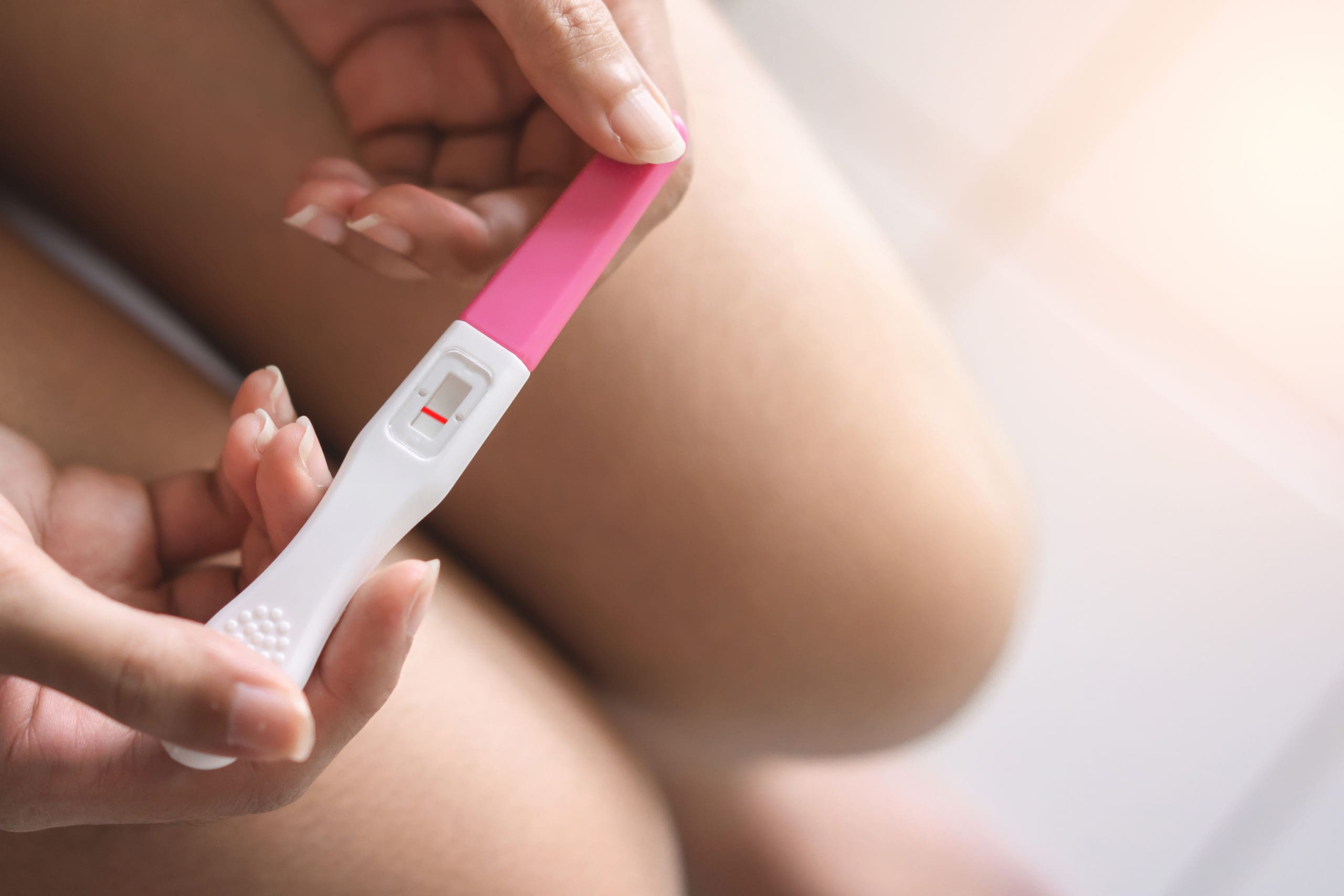With Canadian Infertility Awareness Week coming up (April 24 to 30), a new Canadian platform is on a mission to change the way we talk about fertility. Day 1 is a first-of-its-kind Canadian fertility network dedicated to the unspoken side of the fertility journey. Although conversation around infertility is on the rise, it remains one of the most isolating and misunderstood experiences. To date, the focus has been on the 1-in-6 who are in the midst of their journey to baby, but what about shedding light on the other 5? The 5-in-6 who are playing a supporting role, or the five who have yet to start trying for a family? We need to look beyond the statistics and start talking from a six out of 6 perspective when it comes to fertility. We chatted with founder Emily Getz to learn more. —Noa Nichol

Please tell us a bit about yourself and what inspired you to start Day 1.
My name is Emily Getz, I was born and raised in Toronto, Ontario, I have been married for six years and have a four-and-a-half-year-old son named Ryder. I am the founder of Day 1, a first-of-its-kind fertility support network here in Canada that consists of a podcast, membership, marketplace and community. In October 2019, I was pregnant with my second child when I lost her unexpectedly at six months pregnant. This experience changed my life and was the precipice of how Day 1 came to be. The magic of Day 1 is that I am still in the midst of building my family. I am in the thick of it alongside my community, all while sharing in real-time. Day 1 continues to evolve as I continue to experience my own personal journey to baby and each offering is developed because of the needs and wants I have today. Thanks to mindset coaching, I have learned through the years how to integrate my fertility struggle into my life versus having it take over and sharing this wisdom is the key cornerstone to Day 1. I know what this community needs and understand how to support, educate, coach, relate and suggest tools to help others get through the journey. Day 1 is the baby that was born out of my losses. Growing this community has given my journey purpose and for that I am extremely grateful.
Can you touch on your own path to motherhood and where you are in your personal fertility journey?
Initially, my path to motherhood was very simple—I wanted to have a baby so I had a baby. I never once considered the complexities of getting and staying pregnant. No one ever educated me about looking into my fertility health or sharing alternate routes to conceiving. It was only when I unexpectedly lost our baby at six months pregnant that I was introduced to the world of infertility. Over the past three years, I have been pregnant three times, undergone medical interventions such as an IUI, three rounds of IVF, the removal of my right fallopian tube due to an ectopic pregnancy, and most recently in February 2022 a D&C after finding out we conceived unassisted. So, to say I understand first-hand what it feels like to live in the isolation that is infertility is an understatement.
Why is Infertility Awareness Week so important? What do you wish more Canadians were aware of?
Canadian Infertility Awareness Week gives everyone—not just those struggling to conceive—the opportunity to shed light on an experience that more than six million Canadians will go through. It’s an incredibly isolating experience and chances are, you’re personally connected to someone who may be silently struggling. I always say that if the only people who speak about infertility are the ones in the midst of it, we will never normalize the conversation. It just becomes an echo and the shame and secrecy that surrounds infertility will continue to circulate. I wish more Canadians understood how complicated it can be to build your family and that wanting to have a baby isn’t always a linear path. If we had more resources in place from the government and employers to support the realities of trying to conceive, we would see advancements from both a medical and societal perspective, giving those who are struggling the support that’s needed.
What is hardest part of navigating infertility?
This question could be answered in so many different ways depending who you ask, but for me and based on what I see day to day through our community, I would say the hardest part overall is investing so much of yourself (physically, mentally, emotionally, financially) into something that isn’t a guarantee. Also going through the process when you are surrounded by others who have what you want so desperately and may have gotten it so easily—navigating how to cope with that comparison can be very challenging. I know that was a complex answer, but that’s infertility!
What is your advice for someone starting their fertility journey?
Don’t just take care of your medical protocol, take care of your mindset protocol too. I find everyone is so focused on what their plan is for the baby, but what I find to be the gamechanger is what my plan is for how I am going to live through it all—how I am still going to enjoy my life as I go into combat for an undetermined amount of time.
What is your advice for those who are supporting someone struggling with infertility?
My advice would be to not offer advice unless you have struggled conceiving. Learn to actually listen and validate their feelings versus trying to always be positive. There is no silver lining to any loss in fertility and take the word “should” out of your vocabulary. Hearing someone say “you should relax” “you should consider …” will only push them away. And lastly, try to help them find some joy and lightness, be the person that they can go to for a little fun. 🙂

January 24th, 2025 at 6:46 am
I’ve started using CBD gummies like https://www.cornbreadhemp.com/collections/full-spectrum-cbd-oil , and they’ve made a important quarrel in my routine. They’re easygoing to use, palate gigantic, and yield a elemental modus operandi to include CBD into my day. I’ve establish they support me put one’s feet up and increase my siesta after a prolonged period, which has been a gargantuan benefit. The accordant CBD dosage in each gummy is a big benefit for the sake of managing intake. If you’re account CBD, gummies are an select opportunity to start with—legitimate pocket tried you determine a trustworthy brand payment the most artistically results!